This is one of the hot topics discussed at the workshop "Aviation - tourism join hands to link sustainable development" organized by Nhan Dan Newspaper on the afternoon of June 12, in Hanoi.
Many rising costs lead to rising airfares.
According to research and assessment by the Association of Asia-Pacific Airlines (AAPA), airfares in the world today and in the near future will tend to increase higher than before. With airlines facing high fuel costs, changes in sustainability, fleet upgrades, additional leasing/purchase, aircraft maintenance, human resource shortages, service prices at airports... as present, global airfares are forecast to increase by 3-7% in 2024 and will continue to increase in the following years.
Sharing at the workshop, Mr. Nguyen Quang Trung, Head of Planning and Development Department of Vietnam Airlines, said that in fact, the increase in airfares of airlines is part of the general trend of the global aviation industry due to the impact of many factors such as raw material prices, inflation and currency devaluation, the global shortage of aircraft affecting aircraft rental prices, etc.
“In Vietnam, recently, high ticket prices have mainly occurred during peak holiday periods or during good times and days when demand for air travel increases. At present, passengers can still choose low, reasonable prices when choosing flights to avoid peak times, peak days and hours,” Mr. Trung shared.
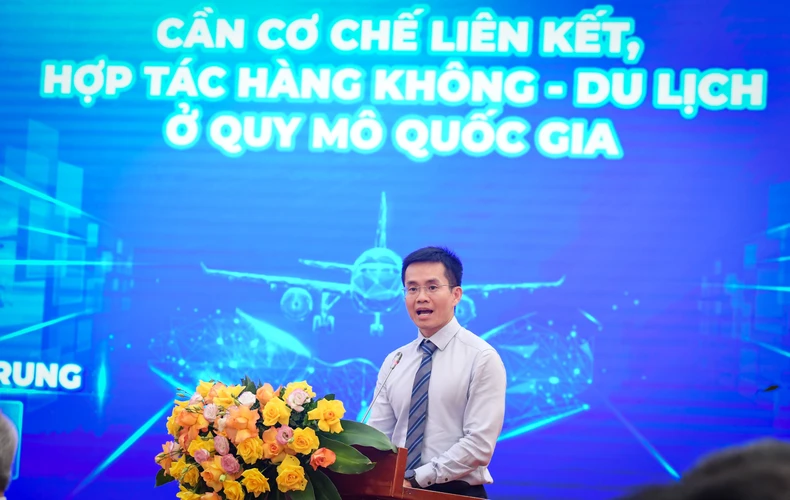 |
Mr. Nguyen Quang Trung, Head of Planning and Development Department of Vietnam Airlines shared at the Workshop. |
Analyzing this issue further, Dr. Bui Doan Ne, Vice President and General Secretary of the Vietnam Aviation Business Association (VABA), commented: In the recent period, in the face of international economic and political fluctuations and engine recalls by manufacturers, the world and Vietnam's aviation industry has been severely affected by sharp increases in input costs. Most notably, fuel costs, engine rental, aircraft maintenance, exchange rate fluctuations and airport infrastructure congestion, etc. Specifically, fuel prices are currently anchored at over 100 USD/barrel. It is forecasted that Vietnam Airlines' air transport costs in 2024 will increase by VND 5,527 billion compared to 2019 due to high fuel prices.
In addition, the exchange rate fluctuates unfavorably while many of the airline's expenses are paid in USD and in local currencies in key markets such as Japan, Korea, etc. Accordingly, in terms of exchange rate, Vietnam Airlines' air transport costs in 2024 will increase by VND 4,729 billion compared to 2019.
Global airfares are forecast to increase by 3-7% in 2024 and continue to rise in the following years.
Global airfares are forecast to increase by 3-7% in 2024 and continue to rise in the following years.
On the other hand, the price of renting aircraft engines in 2024 will double compared to 2019 (Airbus A321 aircraft engines cost 48-50 thousand USD/month in 2019, increasing to 80-100 thousand USD/month in 2024; Boeing 787 aircraft engines: 160 thousand USD/month in 2022 increasing to 370 thousand USD/month in 2024). The price of spare parts and supplies will increase by 10-13%.
“The time it takes to repair an engine has doubled: in 2019 it took about 75 days, now it takes 140-160 days. In some special cases, it can take up to a year. This causes revenue losses because the aircraft have to stay grounded for a long time. Air traffic and ground congestion at major airports during peak season makes flight times longer than planned, causing additional costs. Notably, foreign airlines are constantly opening new ones and increasing frequencies on long routes, especially Chinese airlines, leading to increased gateway competition," the General Secretary of the Vietnam Aviation Business Association further analyzed.
Meanwhile, neighboring countries such as Thailand and Malaysia continuously have visa exemption policies, reduced fees or extended stay periods, which also increases competition for destinations.
Solutions to help the aviation industry overcome difficulties
Sharing solutions to overcome difficulties for the aviation industry in the current period, Mr. Nguyen Quang Trung said that for many years, Vietnam Airlines has implemented a strategy to upgrade its services, aiming for international 5-star standards. The airline has invested heavily in upgrading its fleet, expanding its flight network, developing human resources and improving the service experience for passengers.
“By improving service quality, airlines can attract more and more customers who demand good quality and have high spending ability. Thereby, increasing revenue and profit efficiency not only for airlines, but also spreading to the entire tourism industry,” said Mr. Trung.
In the context of a difficult market and environment, the efforts of the aviation industry in recent times have made an important contribution to the complete recovery of international arrivals, ensuring Vietnam's competitiveness as a destination.
However, according to Mr. Trung, with Vietnam's tourism potential, the figures on the number of tourists and the growth rate of the domestic tourism industry could be even more impressive if the cooperation between the aviation and tourism industries were implemented synchronously and effectively.
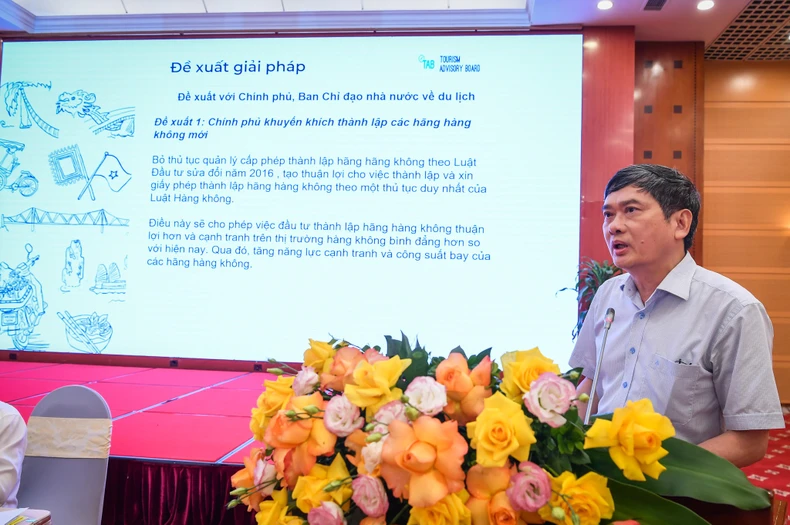 |
Mr. Hoang Nhan Chinh, Head of the Tourism Advisory Board (TAB) Secretariat, proposed solutions to reduce costs for airlines. |
Proposing solutions to reduce costs for airlines in the context of rising input costs, creating conditions for airlines to reduce ticket prices, supporting tourism stimulation, Mr. Hoang Nhan Chinh, Head of the Secretariat of the Tourism Advisory Board (TAB), proposed to remove the regulation on ceiling prices, review the ceiling price mechanism for domestic air tickets currently applied in Vietnam so that the market can decide on domestic air ticket prices according to the law of supply and demand, with management and regulation according to the Competition Law.
In the immediate future, apply flexible ceiling prices according to gasoline prices. In case the Ministry of Transport has not yet removed the regulation on ceiling prices, apply ceiling prices according to fluctuations in aviation input costs, especially gasoline prices.
In addition, the Government should encourage the establishment of new airlines. This will allow for easier investment and establishment of airlines and more equal competition in the aviation market than at present. Thereby, increasing the competitiveness and flight capacity of airlines.
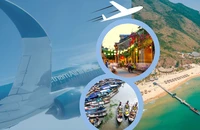
What linkage and cooperation mechanisms help aviation and tourism "take off"?
Regarding the issue of supporting tax, fee and price policies, Mr. Chinh proposed: "The Government should consider adjusting and reducing import tax on petroleum fuel to support airlines in the current difficult period. Specifically, exempting the 7% import tax on petroleum for domestic flights, and applying an environmental protection tax on aviation fuel equal to 70% of the prescribed tax rate."
Source: https://nhandan.vn/vi-sao-gia-ve-may-bay-tang-cac-hang-hang-khong-van-keu-kho-post814126.html


![[Photo] Readers line up to visit the photo exhibition and receive a special publication commemorating the 135th birthday of President Ho Chi Minh at Nhan Dan Newspaper](https://vphoto.vietnam.vn/thumb/1200x675/vietnam/resource/IMAGE/2025/5/17/85b3197fc6bd43e6a9ee4db15101005b)


![[Photo] Prime Minister Pham Minh Chinh chairs meeting on science and technology development](https://vphoto.vietnam.vn/thumb/1200x675/vietnam/resource/IMAGE/2025/5/17/ae80dd74c384439789b12013c738a045)
![[Photo] More than 17,000 candidates participate in the 2025 SPT Competency Assessment Test of Hanoi National University of Education](https://vphoto.vietnam.vn/thumb/1200x675/vietnam/resource/IMAGE/2025/5/17/e538d9a1636c407cbb211b314e6303fd)





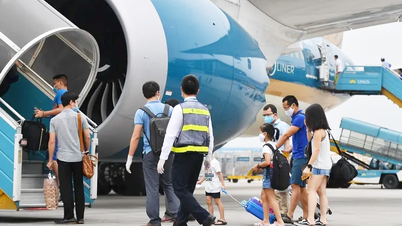

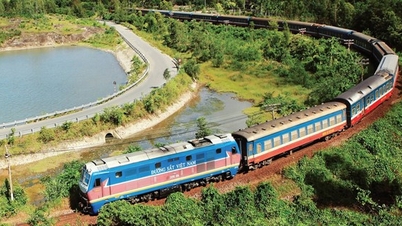
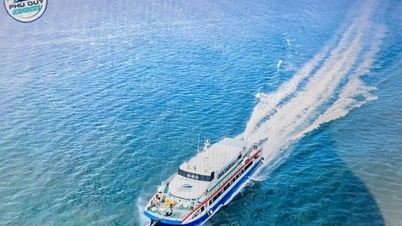







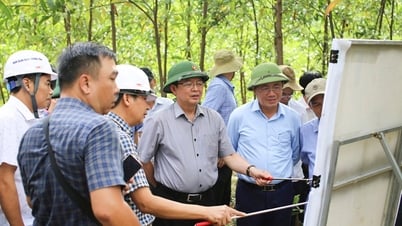







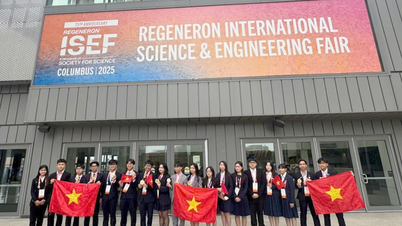

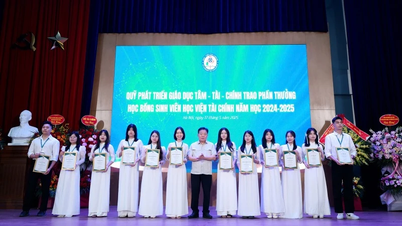

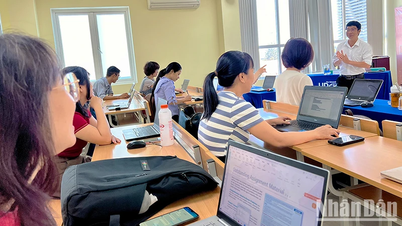
![[Photo] Nearly 3,000 students moved by stories about soldiers](https://vphoto.vietnam.vn/thumb/1200x675/vietnam/resource/IMAGE/2025/5/17/21da57c8241e42438b423eaa37215e0e)






















































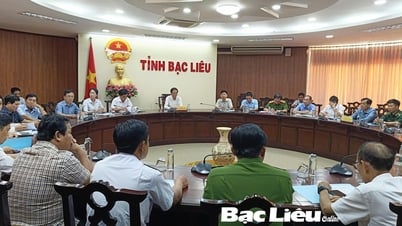


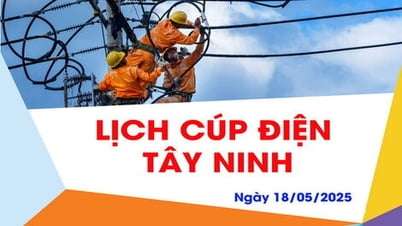














Comment (0)